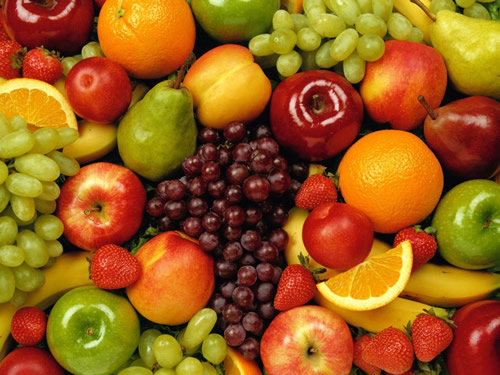In order to keep a healthy heart and brain, you need to ensure you have the mineral potassium incorporated into your daily diet. Low potassium levels may lead to weak muscles, an irregular heartbeat, mood swings, nausea, or vomiting, or a combination.
Although it is nice to know the answer to, “How much potassium do I need?” there are many foods that offer an adequate amount. Foods from plants and animals will help eliminate any potassium deficiency keeping most people healthy.
How Much Potassium Do I Need?
Having an adequate intake of potassium will help prevent strokes, osteoporosis, high blood pressure, kidney stones, and many other nerve and heart diseases. How much potassium you need mostly depends on your age.
For infants:
- 0-6 months old – 0.4 grams per day
- 7-12 months old – 0.7 grams per day
For children and teenagers:
- 1 to 3 years old – 3.0 grams per day
- 4-8 years old – 3.8 grams per day
- 9-13 years old – 4.5 grams per day
- 14-18 years old – 4.7 grams per day
For adults:
- 19 and above – 4.7 grams per day
For pregnant women:
- 4.7 grams per day
For nursing women:
- 5.1 grams per day
Why Do I Need Potassium?
Potassium is most commonly known to prevent muscle cramping, but this is not all it does. Potassium aids in muscle contraction, balancing your body fluids, and stabilizing your blood pressure.
A simple answer to, “How much potassium do I need?” is, enough to maintain a regular heartbeat, reduce risk of kidney stones, and prevent bone loss.
What Happens If Your Potassium Intake Is Not Enough?
By eating a healthy diet, on a regular basis, you should naturally consume plenty of potassium. Unfortunately, many Americans do not eat a healthy enough diet. Due to the low potassium levels in their diet, many suffer from high blood pressure, stroke, arthritis, and other health related issues. Usually doctors will recommend potassium supplements for these people to help maintain proper potassium levels.
Most of the potassium deficiencies occur in people who use certain medications such as diuretics, have jobs that are physically demanding, are athletes, have a health condition that affects potassium absorption such as Crohn’s disease or kidney disease, have eating disorders, smoke, or use drugs or alcohol.
Signs You Are Not Getting Enough Potassium
- Uncommon fatigue: You need proper amounts of potassium to improve cellular functions within your body. If you feel exhausted after your normal workouts and you know you had plenty of sleep, then a lack of potassium may be the culprit.
- High blood pressure: Without enough potassium to relax your blood vessels, the vessels will become constricted causing high blood pressure.
- Most of your food is processed: If you notice that most of your food comes from boxes or bags, then you most likely have low potassium levels due to all the sodium you are consuming.
- Muscle cramps or spasms: Since potassium aids in muscle contraction, you will notice cramps or spasms in your muscles when potassium is low.
- Irregular heartbeat: One cause of a sudden increase in your heartbeat is a lack of potassium in your bloodstream.
- Light headed: A slow heartbeat that causes lightheadedness and dizziness may be the symptom of a sudden drop in your potassium levels.
- Abdominal pain and cramping: Low levels of potassium affect your digestive system as well. Without proper potassium levels, you may suffer from constipation or bloating.
- Tingling sensations: Your nerves may show signs of numbness or tingling when potassium levels drop.
How Can I Get Adequate Potassium?
Knowing the answer to “How much potassium do I need?” will no doubt help you to get the necessary amount of potassium you need. As mentioned earlier, there are two ways you can ensure that you get adequate levels of potassium in your system. Maintaining a healthy, well balanced diet is the best way, however some people may need added supplementation.
The most well-known source of potassium is banana; unfortunately this is not the best source. Bananas only contain about half the potassium you can get from other foods such as potatoes.
Compared to a large banana which contains about 487 mg of potassium
- A medium sized potato contains about 926 mg of potassium
- A half cup of cooked spinach contains about 420 mg
- 6 oz of orange juice contains about 372 mg
 Other potassium rich foods include:
Other potassium rich foods include:
- Grapefruits
- Raisins
- Lima beans
- White beans
- Prunes
- Dates
- Winter squash
- Tomatoes and tomato products
Do I Have to Take Supplements?
While wondering “How much potassium do I need?” without definite answer, you may worry that your potassium intake is not enough and try to take supplements.
The thing is, when you include enough potassium rich foods in your daily diet, it is unnecessary to add in potassium supplements. However, if you do not eat a healthy diet or have other health issues it is important that you consult with your doctor to determine the appropriate amount of supplementation that you need.
Possible Side Effects of Over Supplementing
Supplementing with potassium may cause nausea, vomiting, diarrhea, and stomach pains especially if you already have enough in your daily diet. Over supplementing may also lead to black stools, irregular heartbeat, mental confusion, and/or a tingling sensation in any of your limbs.
Supplementing with potassium may also interfere with any medications that you are taking. Medications such as heparin, diuretics, digoxin, cyclosporine, beta-blockers, and non-steroidal anti-inflammatory medications are severely affected. It is important that you have created a supplementation plan with your doctor to ensure your health and safety.
